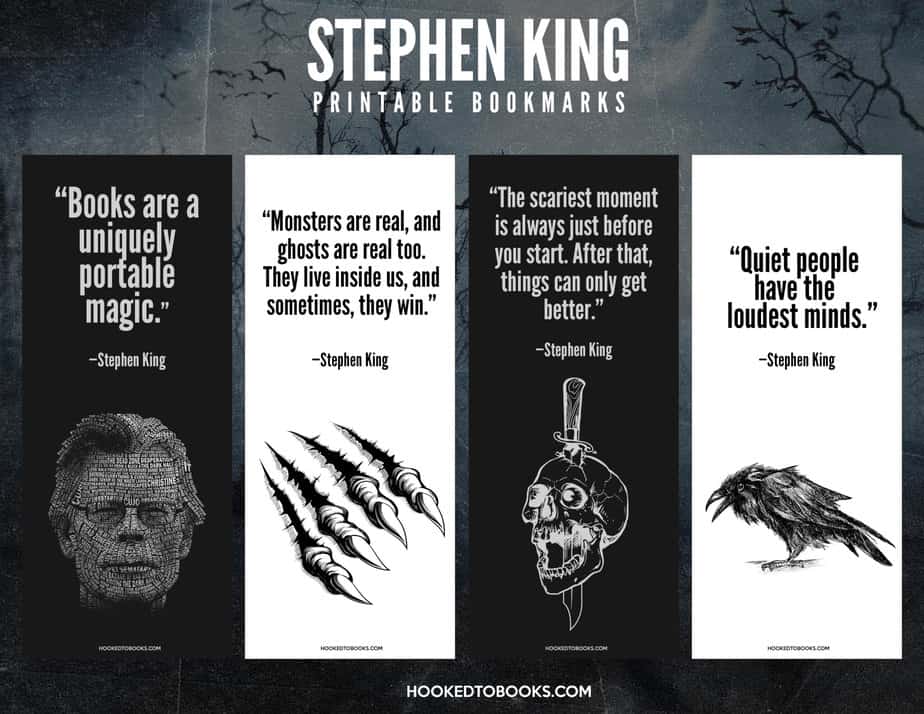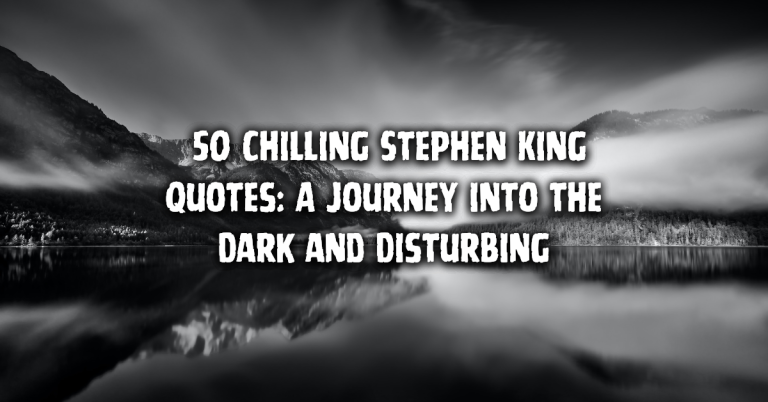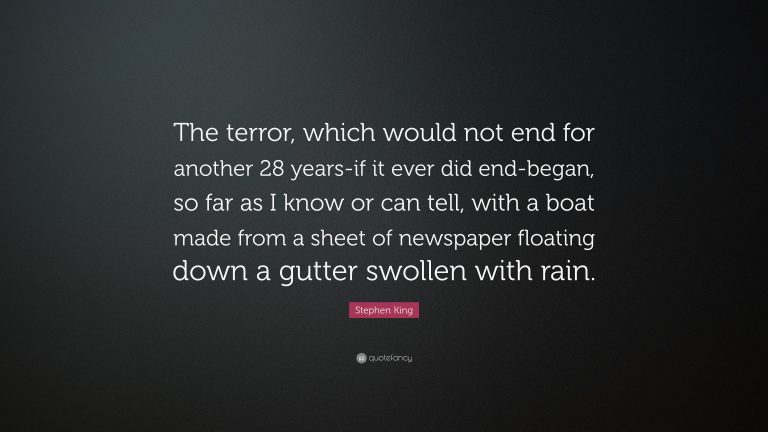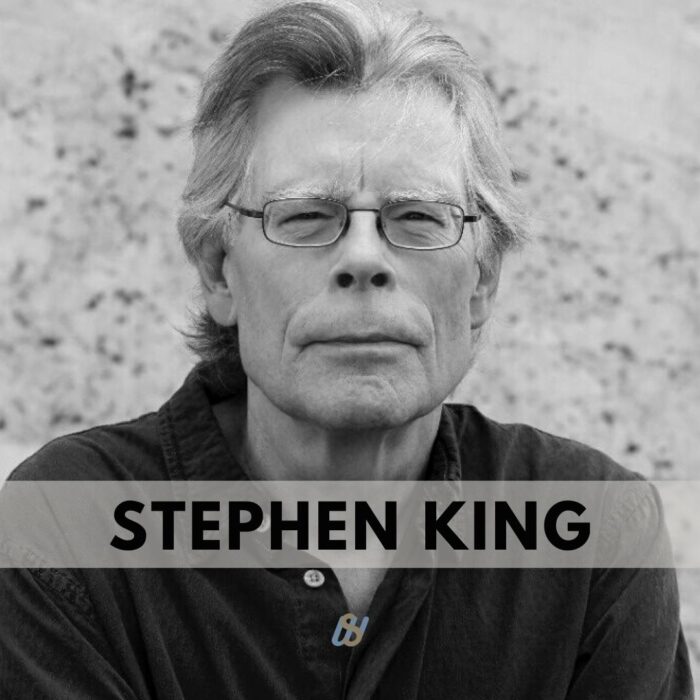Lessons From The Dark Side: Stephen King’s Quotes On The Craft Of Horror
Welcome to the dark side, where spine-chilling tales lurk and nightmares come alive. In this article, we delve into the macabre world of horror through the lens of the master storyteller himself, Stephen King. Get ready to be captivated and terrified as we explore the lessons from the dark side, unraveling Stephen King’s insightful quotes on the craft of horror.
Stephen King, the undisputed king of horror, has enthralled readers for decades with his bone-chilling novels and terrifying tales. But beyond the scares and goosebumps, there are valuable lessons to be learned from his writings. In this article, we uncover the wisdom hidden within Stephen King’s quotes, shedding light on what makes a great horror story and how to craft a narrative that will haunt your readers’ dreams.
So, brace yourself as we journey into the eerie world of Stephen King and discover the secrets of his chilling craft. Whether you’re an aspiring writer or simply a fan of the horror genre, these lessons from the dark side are sure to leave you with a newfound appreciation for the art of fear. Get ready to be inspired, thrilled, and perhaps even a little terrified, as we explore Stephen King’s quotes on the craft of horror.

Lessons from the Dark Side: Stephen King’s Quotes on the Craft of Horror
Stephen King is a master of horror, known for his chilling and captivating novels that keep readers on the edge of their seats. His ability to tap into our deepest fears and create compelling stories has made him one of the most successful authors of our time. But what can we learn from King’s quotes about the craft of horror? In this article, we will explore the lessons we can glean from King’s insights and how they can be applied to our own writing.
The Power of Fear
Stephen King once said, “We make up horrors to help us cope with the real ones.” This quote highlights the power of fear and its ability to captivate and engage readers. As writers, we can harness this power by delving into the darkest corners of our imagination and tapping into the fears and anxieties of our audience. By creating characters and situations that evoke a sense of dread, we can draw readers into our stories and keep them hooked until the very end.
Another important lesson from King’s quotes is the idea that horror can be a reflection of the real world. He often incorporates real-life events and societal issues into his novels, using horror as a vehicle to explore and comment on these topics. This approach adds depth and relevance to his stories and allows readers to connect with the underlying themes on a deeper level. As writers, we can learn from this and strive to infuse our own horror narratives with elements of reality, making them more relatable and thought-provoking.
Creating Memorable Characters
One of the key elements of Stephen King’s writing is his ability to create memorable and complex characters. He once said, “The most important things are the hardest to say, because words diminish them.” This quote reminds us of the power of nuanced and well-developed characters in horror fiction. By crafting protagonists and antagonists that are multi-dimensional and relatable, we can elicit stronger emotional responses from our readers.
King also emphasizes the importance of creating characters that readers care about. He believes that “if you don’t make the reader care about the characters, they won’t go on to the next paragraph.” This sentiment reinforces the idea that compelling characters are essential for engaging storytelling. By investing time and effort into developing well-rounded characters with hopes, fears, and flaws, we can ensure that our readers become emotionally invested in our narratives.
In addition to character development, King also emphasizes the importance of dialogue in bringing characters to life. He once said, “Good dialogue is not real speech – it’s the illusion of real speech.” This quote reminds us that crafting believable and engaging dialogue is crucial for creating authentic and compelling characters. By paying attention to the way our characters speak and interact with each other, we can enhance the overall quality of our storytelling.
The Art of Suspense
Stephen King is a master of suspense, and his quotes offer valuable insights into how he creates tension in his writing. He once said, “The trust of the innocent is the liar’s most useful tool.” This quote highlights the importance of manipulating readers’ expectations and taking them on a rollercoaster ride of emotions. By establishing trust and then subverting it, we can keep readers on the edge of their seats and eagerly turning the pages.
Another lesson we can learn from King’s quotes is the power of pacing. He believes that “books are a uniquely portable magic,” and that pacing is crucial for maintaining the momentum and tension in a story. By carefully controlling the rhythm of our narratives, we can create a sense of urgency and anticipation that propels readers forward. This can be achieved through a combination of well-timed reveals, suspenseful cliffhangers, and moments of quiet reflection.
Embracing the Unknown
One of the recurring themes in Stephen King’s quotes is his fascination with the unknown. He once said, “I have the heart of a small boy. It’s in a glass jar on my desk.” This quote captures his curiosity and willingness to explore the darker aspects of human nature. As writers, we can take inspiration from this and embrace the unknown in our own storytelling. By delving into uncharted territories and pushing the boundaries of our imagination, we can create unique and captivating narratives that captivate readers.
King also emphasizes the importance of facing our fears head-on. He believes that “the scariest moment is always just before you start,” highlighting the fear and uncertainty that can accompany the creative process. However, he encourages writers to embrace these challenges and push through the initial discomfort. By confronting our fears and embracing the unknown, we can tap into our true creative potential and produce work that is truly extraordinary.
In conclusion, Stephen King’s quotes on the craft of horror offer valuable insights and lessons that can be applied to our own writing. From the power of fear and creating memorable characters to the art of suspense and embracing the unknown, King’s wisdom can inspire and guide us as we navigate the dark side of storytelling. By incorporating these lessons into our own writing, we can captivate readers and create narratives that linger long after the final page. So, let us take a page from Stephen King’s book and embark on our own terrifying and exhilarating writing journeys.
Key Takeaways:
- Horror can be a powerful tool for exploring the darker aspects of human nature.
- Stephen King believes that fear is essential for a good horror story.
- Creating relatable characters is crucial to making a horror story impactful.
- King emphasizes the importance of suspense and tension in building a terrifying atmosphere.
- According to King, the best horror writing comes from a place of genuine passion and love for the genre.
Frequently Asked Questions
Here are some frequently asked questions about Stephen King’s quotes on the craft of horror:
1. How do Stephen King’s quotes provide lessons for aspiring horror writers?
Stephen King is a master of horror, and his quotes offer valuable insights and lessons for aspiring horror writers. One key lesson is the importance of creating relatable characters. King often emphasizes the need to develop characters that readers can connect with and care about, as this makes the horror more impactful. He also emphasizes the power of imagination and encourages writers to let their ideas flow freely, without self-censorship. By embracing their darkest thoughts and fears, writers can create truly terrifying stories.
In addition, King stresses the significance of revision and editing in the writing process. He advises writers to be ruthless in cutting unnecessary words and tightening their prose. According to King, good writing is often the result of rewriting, and the willingness to revise is what separates amateur writers from professionals. Overall, Stephen King’s quotes provide valuable lessons on character development, imagination, and the importance of revision for aspiring horror writers.
2. What does Stephen King say about the role of fear in horror writing?
Stephen King believes that fear is an essential element of horror writing. He often stresses the importance of tapping into readers’ deepest fears and anxieties to create truly terrifying stories. King encourages writers to explore their own fears and use them as a basis for their writing. By delving into their personal fears, writers can infuse their stories with a sense of authenticity and raw emotion that resonates with readers.
Furthermore, King emphasizes that horror should not only evoke fear but also provide a cathartic experience. He believes that horror writing allows readers to confront their fears in a safe environment and ultimately find a sense of relief and empowerment. By understanding the role of fear and its potential impact on readers, writers can create powerful and memorable horror stories.
3. What advice does Stephen King give for building suspense in horror writing?
Stephen King is renowned for his ability to build suspense in his horror novels. One key piece of advice he offers is to create relatable characters facing extraordinary circumstances. By establishing a connection between the readers and the characters, writers can heighten the tension and make the horror more palpable.
King also emphasizes the importance of pacing in building suspense. He suggests that writers should vary the tempo of their storytelling, alternating between moments of intense action and slower, more atmospheric scenes. This creates a rollercoaster effect, keeping readers on the edge of their seats and eagerly turning the pages.
4. How does Stephen King approach the use of gore in horror writing?
Stephen King acknowledges the role of gore in horror writing but advises writers to use it sparingly and strategically. He believes that excessive gore can desensitize readers and diminish the impact of the horror. Instead, King emphasizes the power of suggestion and the reader’s imagination. By leaving certain details to the reader’s interpretation, writers can tap into their deep-seated fears and create a more lasting and chilling effect.
While King recognizes that there may be instances where graphic descriptions are necessary, he encourages writers to balance them with subtler and psychological elements. By finding the right balance between gore and psychological horror, writers can create a more nuanced and impactful reading experience.
5. How does Stephen King view the role of horror in society?
According to Stephen King, horror serves as a reflection of society’s deepest fears and anxieties. He believes that horror writing allows people to confront and process their fears in a safe and controlled environment. By exploring these fears through fictional narratives, horror writers can offer insights into human nature and the human condition.
In addition, King views horror as a genre that provides entertainment and escapism. He believes that horror stories allow readers to experience intense emotions and adrenaline rushes, providing a thrilling and cathartic experience. Ultimately, Stephen King sees horror as a genre that has the power to entertain, enlighten, and offer a unique perspective on the world we live in.
Stephen King on writing; why he never uses a notebook and other tips from the top!
Final Thoughts: Unleashing the Horror Within
As we delve into the dark and twisted world of horror, guided by the master of the genre himself, Stephen King, we have learned valuable lessons on the craft of creating spine-chilling tales. King’s quotes are not only insightful but also serve as a reminder of the power of imagination and the importance of honing our writing skills. Through his words, we are encouraged to embrace our fears, explore the depths of human nature, and unleash the horror within.
King’s wisdom goes beyond the realm of horror fiction. It resonates with writers of all genres, reminding us that storytelling is an art form that demands dedication, perseverance, and a sprinkle of madness. His quotes inspire us to push the boundaries of our creativity, to embrace the darkness, and to let our imaginations run wild. By incorporating his lessons into our own writing, we have the opportunity to captivate readers, evoke emotions, and leave a lasting impact.
So, let us step into the shadows, armed with Stephen King’s invaluable advice, and create stories that will haunt the dreams of readers for generations to come. Let us embrace the darkness, for within it lies the power to craft tales that will send shivers down spines and ignite our creative souls. As we continue on our writing journeys, may we always remember the lessons from the dark side and fearlessly explore the depths of our imagination.






